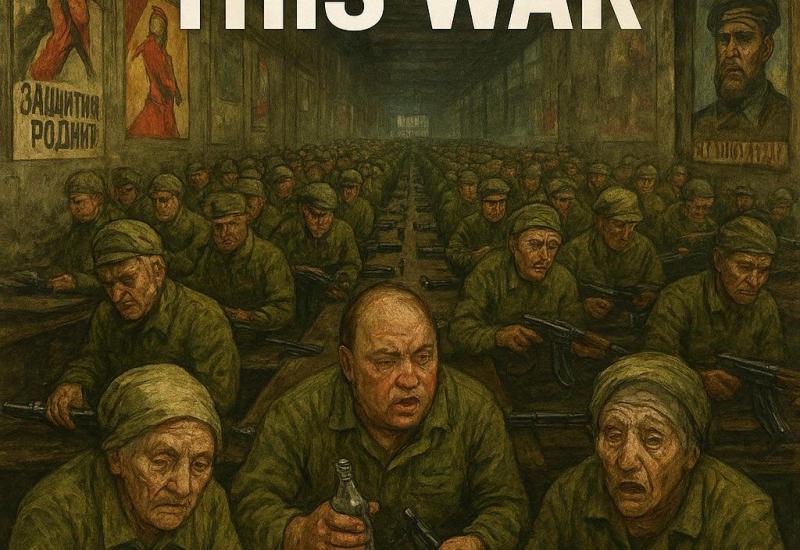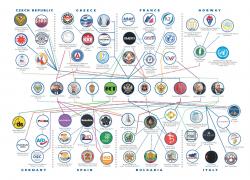Is Chile’s Golden Era Finished?
Since Chile became a democracy in 1989, this South American country has been the most successful economy in its region, by far. A region constantly overwhelmed by social unrest, political turmoil, and staggering levels of income inequality and extreme poverty. The key for Chile’s success has been its adoption of a series of market institutions, such as the rule of law, sound monetary policy, free markets, free trade, and a successful industrial policy focused on guaranteeing loans for small enterprises, subsidies to new exports, and programs to foster innovation.
As a result of this institutional framework – first implemented during the dictatorship of Augusto Pinochet, and then adopted and even deepened during the social democrat governments of La Concertación – Chile is now among the fifteen freest economies in the world (as seen in the graph below, which compares Chile’s increasing level of economic freedom with Venezuela’s unprecedented decline in the same criteria).
Just to contextualize the economic miracle that Chile represents, allow me to cite a few indicators related to the economic and social development of Chile in the last decades. In terms of the country’s gross domestic product, the Chilean economy has quadrupled in size since the mid-1970s (as you can see in the graph below, which compares Chile’s growth with Venezuela’s economic collapse). Accordingly, the country’s poverty rate has fallen from 45 percent to just nine percent in this period.
Similarly, since the 1990s, Chile’s extreme poverty has fallen from 35 percent to just two percent, the middle class has grown from 23 percent of the population to 65 percent, and the country’s life expectancy has increased from 69 to 79 years of age. Moreover, 85 percent of Chileans between 25 and 34 years of age have secondary education, which is over ten times the number of students in higher education that Chile had in the 1970s. Overall, the United Nations’ Human Development Index has Chile as their highest-ranked country in Latin America, among the fifty highest-ranked countries in the world.
Yet, despite these impressive achievements, the “Chilean Model” does not possess much popularity among its own population. In fact, the vast majority of Chileans have become notoriously dissatisfied with their country’s track record. This became somewhat noticeable during the government of Michelle Bachelet, when the public opinion became more favorable to left-leaning policy proposals, such as the tax hikes that Bachelet implemented in 2014, which increased Chile’s marginal tax rate (as shown in the graph below). Finally, this discontent became undeniable on Sunday, when eight out of 10 Chileans voted in favor of rewriting the country’s constitution.
With the crafting of a new constitution in Chile, it is safe to say that the country’s economy will experience some turmoil in the near future. Not only for the economic harm that constitutional processes produce, as these induce extreme levels of political and legal uncertainty to investment projects. But also because of the left-leaning ideas that have become predominant in today’s Chile, ideas that will fundamentally shape the relationship between Chile’s public and private sectors, ideas that will most likely be against Chile’s market system, ideas that, as a result, could end Chile’s period of exceptional economic growth.
But why do Chileans want to radically change the same system that has produced so much prosperity for their country? One can understand the desire to reform a system, but a new constitution represents a radical overhaul of the entire model. When polling companies have asked this question, there is one topic that stands above the rest: income inequality. Most Chileans consider that their system has become intolerable, especially for the less fortunate. For this reason, those who want change, advocate that the Chilean government should take a considerably greater redistributive role in the economy.
The problem with this rationale is that it does not fit the data. According to the World Bank, Chile’s income inequality has been falling considerably since the 1990s. And as a result, Chile’s Gini Index (which measures income inequality) is currently lower than the Latin American average, according to the United Nations’ Economic Commission for Latin America and the Caribbean (as shown above).
Similarly, according to studies made by Rodrigo Valdes – who was Chile’s finance minister in the past - between 1990 and 2015, the income of the poorest 10 percent of Chileans rose by a factor of four, while the one of the top 10 percent went up by a factor of two, meaning that the poorest percentile has benefited the most from Chile’s growth rates. And in terms of social mobility, the Organization for Economic Cooperation and Development (OECD) found that over 20 percent of children born in the bottom quantile of income earnings reached the highest quartile, a testament to Chile’s social mobility.
So, what lesson can we draw from Chile’s desire to fundamentally change the same system that turned their country into the best economy in Latin America? From my perspective, the lesson of this story is that for economic systems to survive over time – especially among young democracies like Chile – these have to be constantly defended and protected in the public opinion from those who seek to change them.
What I mean by this is that producing positive economic outcomes is necessary but not sufficient for an economic system to survive for generations. The benefits of the system have to be properly communicated – by activists, journalists, and politicians – to the general public so that the citizens not only understand the system but also embrace it as theirs. For this reason, the supporters of a specific political or economic system have to carefully communicate the blessings of their system, in a way that connects with the history, culture, struggles, and desires of their people.
Take the United States as an example, Americans not only believe that their system is the greatest in the world. They also see capitalism as an American product. As a result, Americans not only defend their free market system for producing greater economic outcomes but also for being as American as it can get. They have an emotional bond with their system, which was perfectly illustrated when former-president Ronald Reagan called the Soviet Union the “evil empire.” Because politically, Reagan’s statement illustrates how Americans defend their system from a moral rather than a utilitarian standpoint.
In contrast, Chileans do not see their system as theirs. And this is perfectly rational, as their system was not built from the bottom up, but rather initially imposed by the dictatorship of Augusto Pinochet. For this reason, the Chilean model – despite producing astonishing economic results – lacked the political legitimacy it needed to survive over time, especially during times of crisis.
So, what the Chilean experience illustrates is that for Latin American countries to succeed at liberalizing their economies, these not only need to change their economic institutions. These need people deeply committed to explaining the functioning, importance, and morality of a system that promotes innovation and entrepreneurship through free markets, free trade, low levels of regulation, and low levels of taxation. Otherwise, populists and demagogues will find ways new ways to destroy what it took decades to build.
By Jorge Jraissati
Jorge Jraissati is the president of the Venezuelan Alliance. Graduated at the Wilkes Honors College, Jorge is an economist, political leader, and a fellow at the Abigail Adams Institute. Jorge has been invited as a guest lecturer to over 20 universities, such as Harvard, NYU, and Cambridge.




















